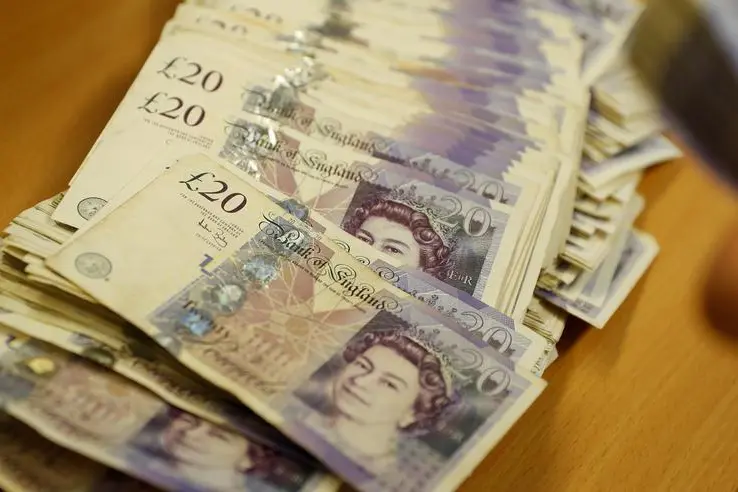PHOTO
LONDON- Sterling was pinned near a six-month high against the euro on Tuesday, with traders remaining of the view that the ruling Conservative Party will get a majority in Britain's parliament following the election next month.
If the Conservative were to win a majority on Dec. 12, expectations are that the Brexit deal agreed with Brussels last month would be approved by the House of Commons and that Britain would exit the European Union on Jan. 31, ending three-and-a-half years of uncertainty.
The pound "continued to edge higher on hopes that the Conservatives get a majority", said Marshall Gittler, strategist at ACLS Global.
"While the results of the election in terms of how many seats each party gets are still up in the air, the effective results are actually quite simple and binary," he said.
If Prime Minister Boris Johnson's party were to fail to secure more than half of the seats on its own, "there will be a minority government and probably be a second referendum", said Gittler, given that "none of the opposition parties is willing to enter into a coalition with the Conservatives this time around".
Sterling was last trading neutral at $1.2957 GBP=D3 and at 85.43 pence against the euro EURGBP=D3 , close to a six-month high of 85.22 pence reached on Monday.
One-month implied volatility gauges for sterling show, however, that investors remain nervous about the outcome of the election.
Options prices are at their highest since mid-October and have nearly doubled in value since the beginning of the month. This essentially shows that demand for protection against sterling volatility has spiked, implying severe currency moves around election time.
Johnson and opposition Labour Party leader Jeremy Corbyn are due to take part in their first televised debate later on Tuesday.
ING analysts say that while an expected debate victory by Johnson would be sterling positive, the level of 0.8500 in euro/sterling "is likely to act as firm support for the cross for now", meaning the pound looks unlikely to strengthen much further.
(Reporting by Olga Cotaga; Editing by Alison Williams) ((olga.cotaga@thomsonreuters.com))





















